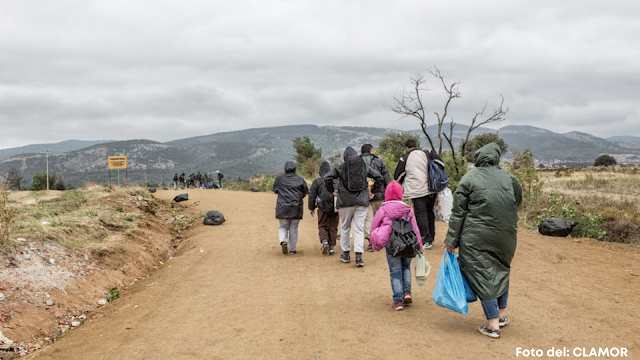President Joe Biden unveiled the Los Angeles Declaration on Migration and Protection, which includes 20 countries from the Americas.
The president said that with this agreement, which he described as a historic commitment, the participating nations plan to transform the approach to migration based on three pillars: offering opportunities, expanding the number of asylum seekers, and strengthening borders.
The declaration states: “We are committed to protecting the safety and dignity of all migrants, refugees, asylum seekers and stateless persons, regardless of their immigration status, respecting their human rights and fundamental freedoms,” and also, “We intend to cooperate closely to facilitate safe, orderly, humane and regular migration.”.
Although the goal is to implement a more humane policy on migration issues in the region, the agreement makes clear the need for greater control of all borders, which will mean more deportations, as well as the implementation of a special operation against human traffickers or "coyotes".
Likewise, it states that deportations from any of the signatory countries will be an essential element in the plan, although they commit to making "safe and dignified returns".
The signatory countries are: Argentina, Barbados, Belize, Brazil, Canada, Chile, Colombia, Costa Rica, Ecuador, El Salvador, Guatemala, Haiti, Honduras, Jamaica, Mexico, Panama, Paraguay, Uruguay, Peru and of course the host United States.
Biden emphasized the importance of addressing the root of the problem: “We recognize the need to promote the political, economic, security, social, and environmental conditions that allow people to live peaceful, productive, and dignified lives in their countries of origin,” he added. “Migration should be a voluntary and informed choice, not a necessity.”.
Furthermore, the declaration consists of the following:
Assistance at different stages (destination, origin, transit and return):
Both countries of origin and countries hosting large numbers of migrants and refugees may need funding in various areas: protection, public health, security, education, employment, etc. For this reason, increased investment will be promoted.
Immigration protection:
The need for some people to migrate from their place of origin, due to special circumstances of danger, is recognized, and a commitment is made to create easier and more expeditious protection processes with opportunities to work.
Border protection:
“We intend to expand collaborative efforts to save lives, address violence and discrimination, counter xenophobia, and combat migrant smuggling and human trafficking,” it states. “This includes greater collaboration to prosecute criminal organizations involved in migrant smuggling and human trafficking, as well as their facilitators and money laundering networks.”
Some sources indicated that the project is largely inspired by the model followed by countries such as Ecuador and Colombia, although these examples have been highlighted during the meeting, these mechanisms would not be replicated in the same way, emphasized José Samaniego, regional director for the Americas of the UN Refugee Agency (UNHCR).
Finally, this declaration has been a cause for celebration in multiple sectors, entities, etc., including UNHCR, who expressed their satisfaction and full support for such an important declaration, to continue working with states, international organizations and civil society to strengthen access to asylum, protection and solutions for people in need.
Information taken from: CNN, RTVE, El Diario, France 24 and UNHCR.

